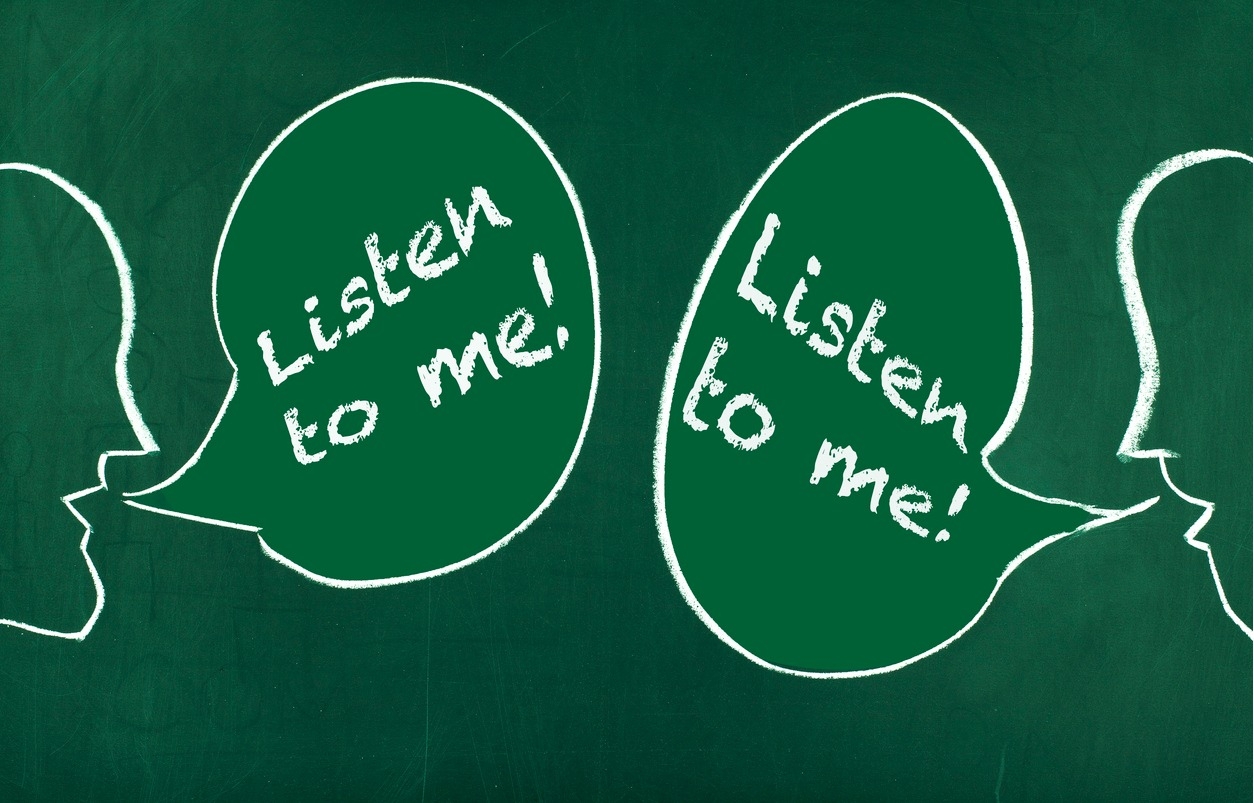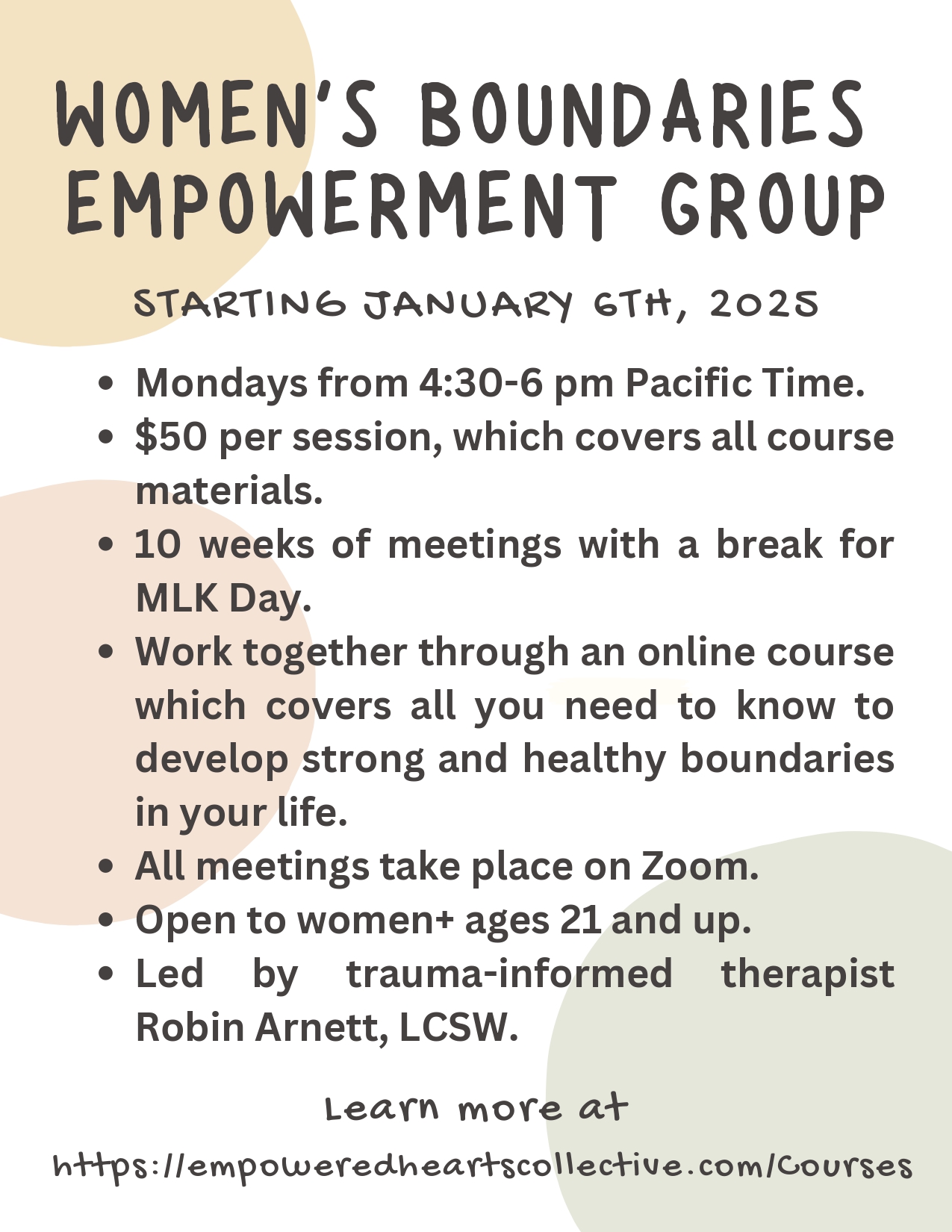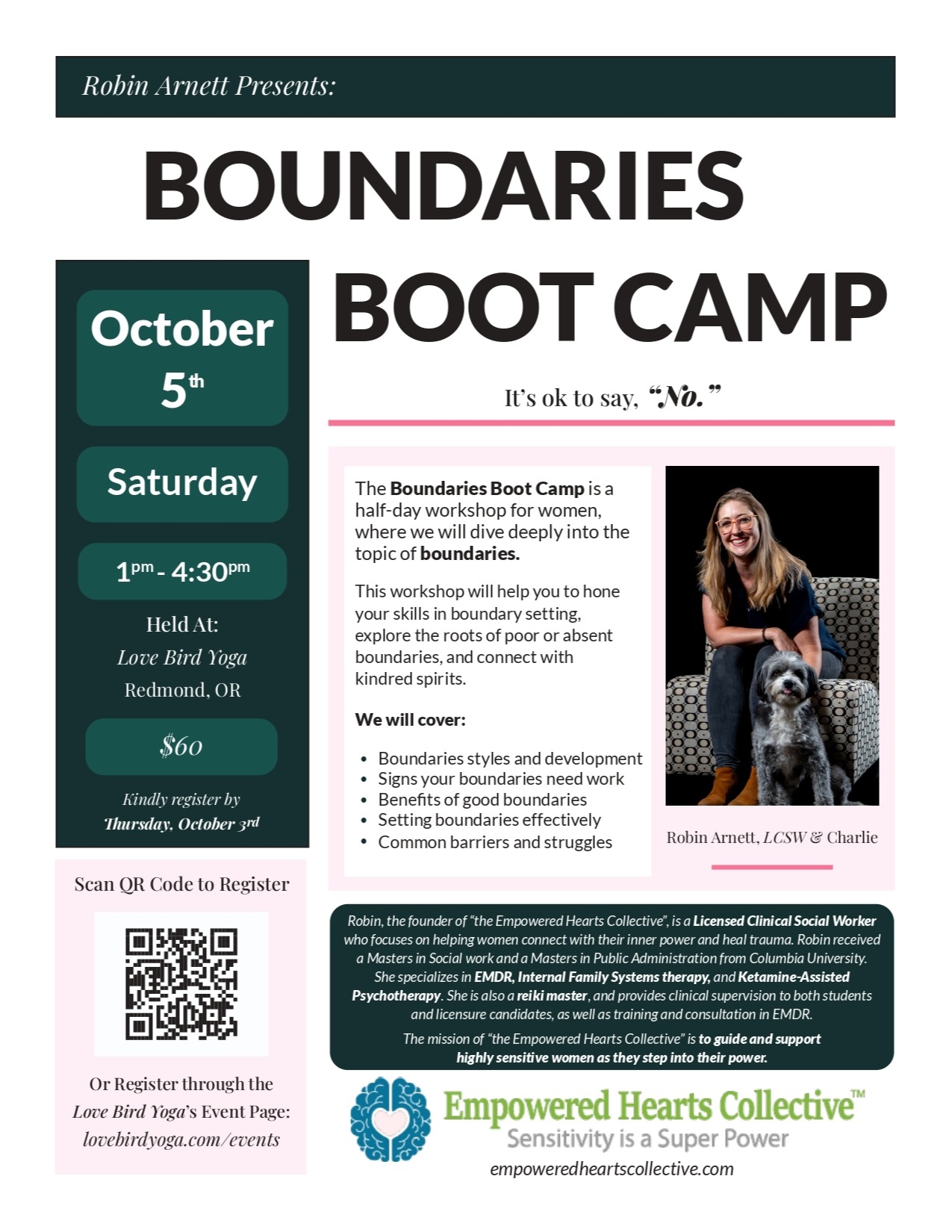Take the first step to stronger boundaries—unlock your free course, Module 7: Setting Effective Boundaries, from the Intuitive Boundaries Mastery Series.
Unlock Free ModuleHow to Be A Good Listener
By Robin Arnett
Much of the job of being a coach or therapist is simply listening. We have different approaches and tools, but evidence shows that the quality of the relationship is essential to client success.
Listening is crucial to all relationships, and one should never underestimate the power of sitting with someone and really hearing their story. This isn’t something that we commonly experience in our daily lives, but its value is tremendous.
The following are all elements of attentive and active listening. Using these approaches will help the people in your life to feel seen and heard, and will vastly improve your connections. I hope you find them helpful!
Listening Through Mirroring
Let’s start with the basics. Good listening means creating space and staying engaged. So, while it’s important to leave room for the other person to speak, you also need to be able to provide confirmation that you’re hearing what they are saying. We do this by mirroring, which essentially means that we notice and respond to the other person through our own words and expressions.
Primates are equipped with mirror neurons, which are basically tiny cells in our brain that respond to others. They were discovered about 30 years ago, and there is still a lot to learn. What we do know is that mirror neurons fire as a response to observing others, and help us to learn and understand what someone is feeling. Interestingly, it has actually been shown that mirror neurons are more active for highly sensitive people.
Even if you don’t consider yourself highly sensitive, you can improve your mirroring through verbal and nonverbal cues. Nonverbal cues like nods, eye contact, and empathetic facial expressions can all signal that you’re paying attention. Without taking over, you can also offer small vocalizations like, “Mhmm,” “Yeah,” “Wow,” etc. These small gestures are surprisingly powerful, and encourage people to open up.
Listening With Empathy
I think of empathy as feeling and understanding the experience of another person. We engage in empathy by looking, listening, relating, and asking questions.
First, observe the person's facial expressions and body language to try to key in to what they’re feeling. You can also listen to what they’re saying and how they’re saying it, and think about how you might feel in their shoes. If you’ve tried all of that and you’re still feeling stuck, you can always ask directly how someone is feeling and what they’re thinking about.
Empathy helps you to connect with others and shows that you care. Once you have a better understanding of how someone is feeling, you can meet them there with the following skills.
Compassion
Compassion means giving comfort, showing concern, and being sensitive to another’s feelings. Expressing compassion can simply sound like, “I’m so sorry you’re going through that.” It can also mean lovingly sitting in silence with someone while they breathe, think, or cry. Compassion is an energy more than anything. When you bring compassionate energy to a situation, the people around you can feel it.
Validation
Validation gives someone permission to feel what they are feeling. I always see pain as taking place on two levels - first we experience a "primary feeling," followed by the feeling that we have about it. For example, you may feel afraid of flying, and then beat yourself up over that fear, calling yourself stupid and childish, and feeling ashamed of yourself. Nine times out of ten, the secondary feelings that we experience create the bulk of our suffering.
When we validate someone’s feelings, we help to relieve that secondary pain. You can say things like, “I would feel the same way,” or “It’s totally fair to have that reaction,” or “That must be so hard!” We all want to know that we’re not crazy and that we’re not alone. You don’t have to validate something that doesn’t feel right for you, but you can at least try to see someone’s perspective by tuning in to empathy and offering compassion for the parts that ring true.
Reflections
A reflection is a summary of what you just heard. You can say things like, “It sounds like that was exhausting for you,” or “I can see how excited you are about this,” or “I’m hearing that ___________ is the most important part of this for you.” You could even say something to show that you’re engaged like, “Wow, that is wild!” If you’re off with your reflection, you give the other person an opportunity to correct you so that you can understand them better, which is really the primary goal.
You can also make reflections that draw from your own life and experiences to show that you relate. Without taking over the conversation, you can comment something like, “I felt the same way in ____________ situation a few years ago.” Again, one of our deepest needs is to feel that we’re not alone. Relating with reflections can help to make people feel that you’re in it with them.
Open-Ended Questions
An open-ended question is any question that cannot be answered with “yes” or “no.” For example, “Would you like a smoothie?” is a close-ended question, but “What would you like to drink?” is open-ended. So, in conversation, you can help to open up the dialogue by asking “How was your day?” vs. “Did you have a good day?” Another example would be asking, “How are you feeling?” vs. “Are you ok?”
Open-ended questions invite the other person to go further in their thought process and explore a topic, idea, or feeling. They also demonstrate curiosity and interest.
Open-ended questions also help you to be more helpful. Asking, “How can I help?” or “What do you need from me right now?” is so much more effective than simply taking over and trying to solve someone’s problems for them. Asking first gives you direct feedback, and shows that you respect that person’s autonomy.
Practice, Practice, Practice
If you’re having some trouble connecting with the people in your life, or even if you’re not, give these listening approaches a try. Even if you don't do it perfectly (because that’s not a thing) the effort you put in will make a world of difference. Being heard is a distinct feeling and experience - we know it when it happens.
Who are the people in your life that help you to feel the most heard? I’d love to hear more. Reach out to share your thoughts.


